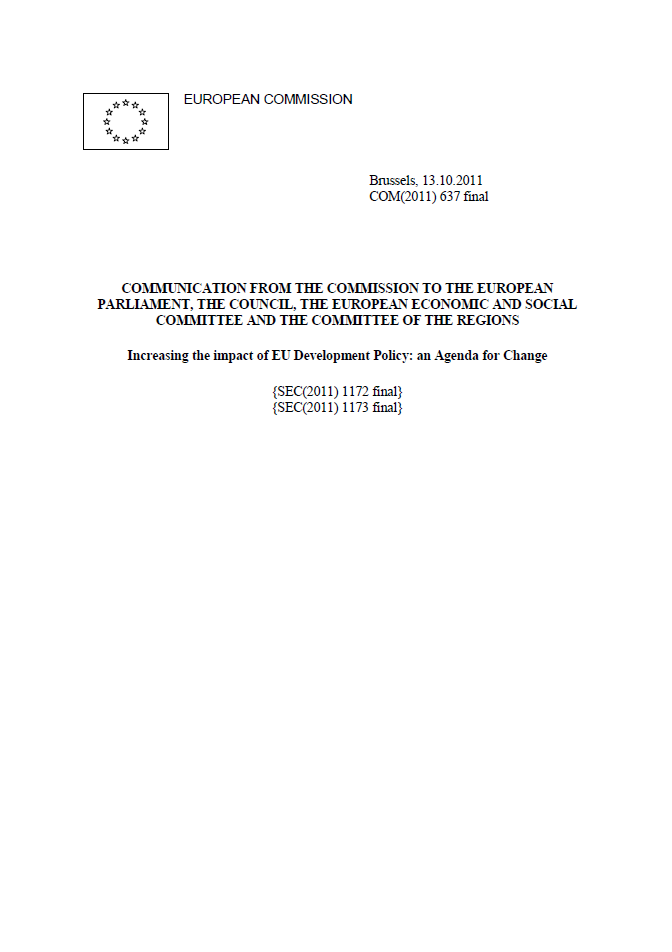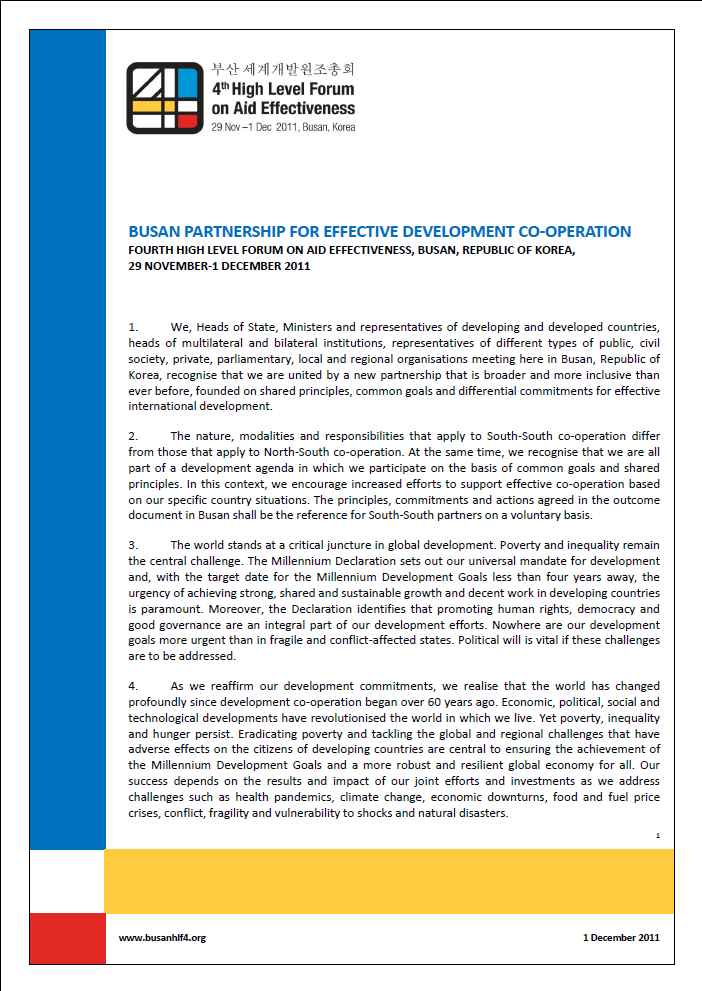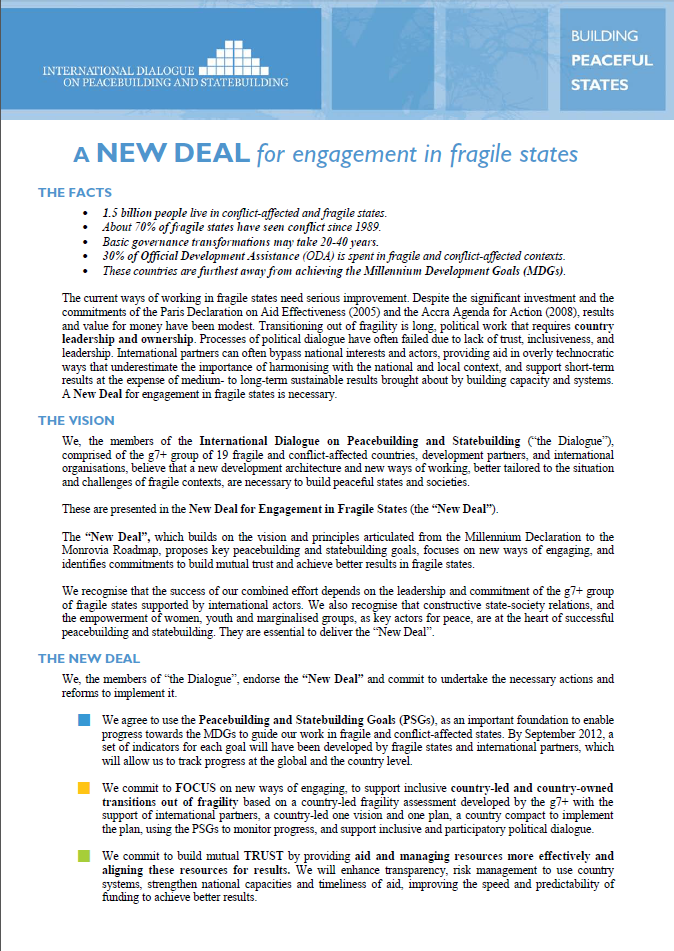Resources on EU Policies

The Agenda for Change aims to adapt the way that the EU delivers aid in a fast-changing environment: it re-prioritises aid delivery to ensure maximum impact on poverty reduction. The document states two priorities on which the EU should concentrate its development cooperation: (i) human rights, democracy and other key elements of good governance; and (ii) inclusive and sustainable growth for human development. The EU must seek to target its resources where they are needed most to address poverty reduction and where they could have the greatest impact. In all regions, in should allocate more funds than in the past to countries most in need, including fragile states. A short video presents the Agenda for Change.

Busan Partnership for Effective Development Co-operation is the outcome document of the Fourth High-Level Forum on Aid Effectiveness, held in Busan, Republic of Korea, in 2011. The result of an inclusive year-long process of consultation, it benefited from the support of a broad range of governmental, civil society, private and other actors. The document sets out principles, commitments and actions that offer a foundation for effective cooperation in supporting international development. Among the topics covered are promoting sustainable development in situations of conflict and fragility, and partnering to strengthen resilience and reduce vulnerability in the face of adversity. Key messages are summarised in the EU Common Position for the HLF4, Council Conclusions.

A Decent life for ALL: Ending poverty and Giving the World a Sustainable Future sets out a common EU approach to the post-MDG framework (2016–30). This 2013 communication of the European Commission (EC) identifies five priorities that are seen as the building blocks of a decent life for all, one being peace and security. In this regard, the communication notes that, ‘Where there is physical insecurity, high levels of inequality, governance challenges and little or no institutional capacity, it is extremely difficult to make sustainable progress on the key MDG benchmarks’.

The New Deal for Engagement in Fragile States summarises the agreement between the members of the International Dialogue on Peace-building and State-building — comprised of the g7+ group of 20 countries in situations of conflict and fragility, development partners and international organisations. The New Deal defines a global approach that supports fragile and conflict-affected countries in preparing and taking the necessary steps that lead to transformation from fragility to development. The document frames implementation of the New Deal between 2012 and 2015 as a trial period. It provides details on the three pillars of commitment: (i) peacebuilding and state-building goals, (ii) a focus on engagement to support country-owned and -led pathways out of fragility and (iii) mutual trust and strong partnerships between countries and their international partners.
